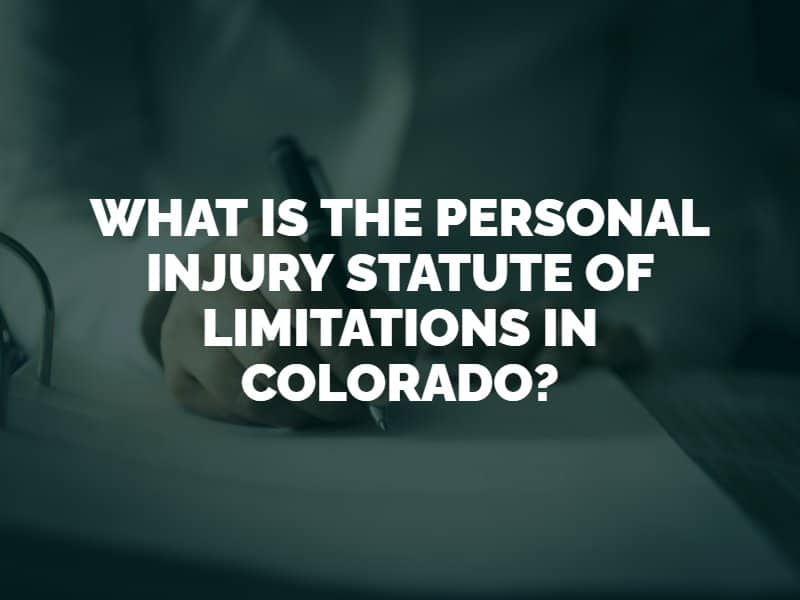Personal injury claims can be exceedingly complex. Therefore, it is rarely a good idea to wait to start the process of filing a claim. Still, many people who have recently been injured in an accident or malicious incident are scared to initiate the process without the help of a Denver personal injury attorney. Others are physically or mentally unable to engage in this arduous process due to their injuries.
Regardless of what is stopping you from filing, you should not allow yourself to miss your opportunity to file. Unfortunately, this can happen if you do not file within the set time period which is defined by your state’s statute of limitations. To learn more about the statute of limitations in Colorado, continue reading.

You do not have an indefinite amount of time to file legal proceedings. Through the statute of limitations, plaintiffs are prohibited from filing claims once too much time has passed following the event that is in question. Though, the statute of limitations varies depending on the type of claim you hope to file.
As stated previously, each type of claim has a different statute of limitations. In Colorado, the statute of limitations on personal injury cases is two years from when you were injured. Although, it is sometimes true that people have longer to initiate their claims. For example, if someone was injured but did not notice an injury until later, the statute of limitations would not begin until they actually discover the injury. This is commonly referred to as the discovery rule.
While two years is the statute of limitations for most personal injury claims, car accident victims get an extra year to file. Instead, they are granted a three-year time period to file after the accident or discovery of injuries associated with the accident.
The other exception to Colorado’s personal injury statute of limitations is associated with filing a claim against Colorado’s governing bodies. If you wish to sue the state, city, or local government, you only have 180 days to start the process of filing your personal injury claim. To ensure that you get your case submitted in a timely manner, speak to a lawyer as soon as possible.
The statute of limitations can be extended if a plaintiff was mentally incompetent or not of legal age when the accident occurred. Extensions may also be granted if the party who caused the accident purposely hid information or gave false or misleading testimonies in court. In addition to these extension permissions, your statute of limitations will be suspended if a defendant leaves the state or hides from being served the lawsuit.
Having an esteemed lawyer review your claim will help you comply with the state’s statute of limitations. To get a free case evaluation, contact Fang Accident Lawyers.